'Heading a football almost killed me'
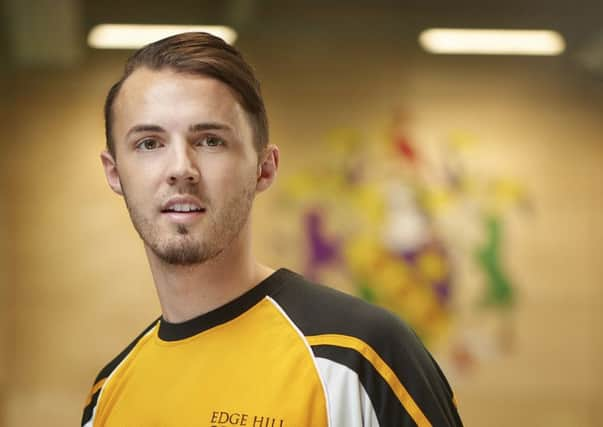

It was a split second moment during a football match but the consequences were life changing.
Throwing himself into the game with enthusiasm and a desire to win the ball, a 16-year-old Michael Cartmell went for a header and clashed heads with another player.
Advertisement
Hide AdAdvertisement
Hide AdMichael, now 24, who lives in Hest Bank, near Lancaster, remembers: “I just remember falling to my knees as my head ached and I was subbed off the match.
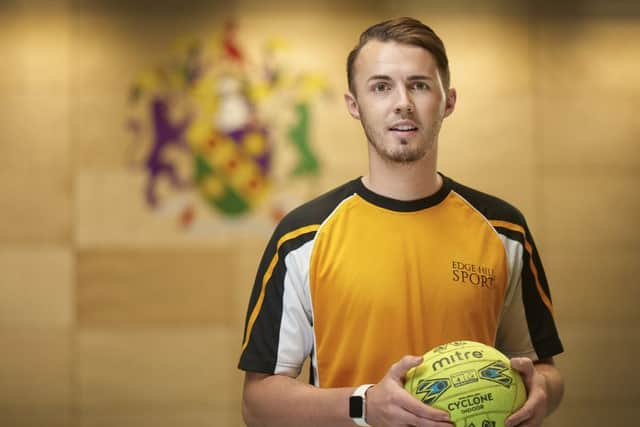

“I went home after the game and had a bath but my head was still pounding so I decided to go for a lie down.”
Things took a serious turn when Michael’s mother Anne went into his room to check on him and discovered he had been sick and she couldn’t wake him as he was unconscious.
Michael says: “I am very lucky that my mum came to check on me as otherwise I would now be dead.”
Advertisement
Hide AdAdvertisement
Hide AdMichael was rushed to the Royal Lancaster Infirmary and brain scans revealed he had a massive blood clot the size of a cricket ball in his brain.
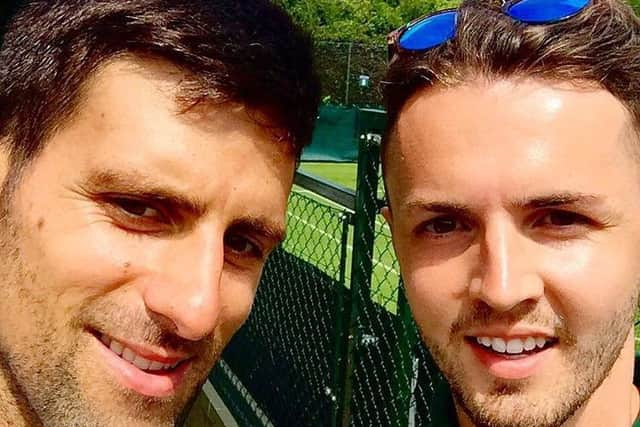

Michael had suffered a subarachnoid haemorrhage which is caused by bleeding on the surface of the brain. It is a very serious condition and can be fatal.
Michael underwent major surgery and was transferred to a specialist unit at Manchester’s Hope Hospital and spent four weeks in an induced coma due to the seriousness of his head trauma.
Michael recalls: “I can remember having very strange dreams while I was in the coma.
Advertisement
Hide AdAdvertisement
Hide Ad“My dreams were very vivid and it felt like they went on forever.
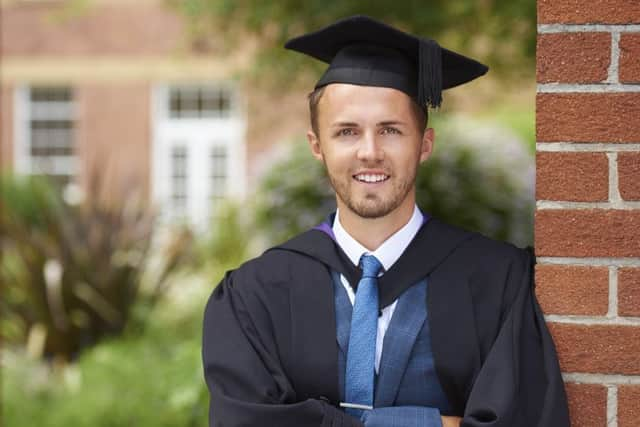

“The week before the accident, Tottenham had just appointed Harry Redknapp as their manager and I dreamt that he had taken over my whole village.
“It felt very real and was extremely weird.”
Michael remembers waking up in hospital and seeing his friends but not being able to speak to them as he could not summon up the language to talk.
He says: “I don’t remember much about my time in hospital apart from the last few weeks as it all seems a blur.
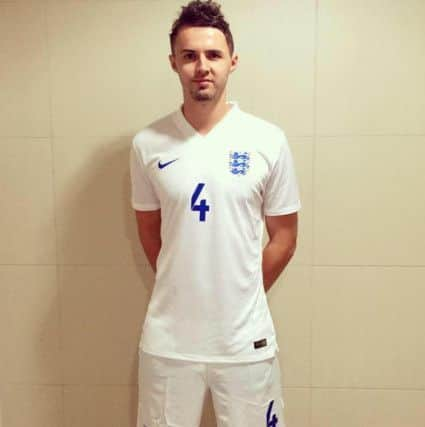

Advertisement
Hide AdAdvertisement
Hide Ad“However, my mum has told me that I wouldn’t let my friends come in to see me because I was so embarrassed about not being able to talk to them.”
Michael spent another two months in hospital and was in a wheelchair for a while before re-learning all his basic skills again including how to walk and talk.
Michael says: “I was left with a slight right-sided weakness so as well as learning to write all over again, I had to learn to use my left hand to do it.”
The accident happened when Michael had completed his GCSEs and was two months into his A-levels.
Advertisement
Hide AdAdvertisement
Hide AdHe went to Lancaster and Morecambe College to learn basic skills again before returning to Ripley St Thomas in Lancaster to do his A-levels.
Michael says: “I received a lot of support from Ripley and I managed to get grades B, C, C in my A-levels which wasn’t bad considering.”
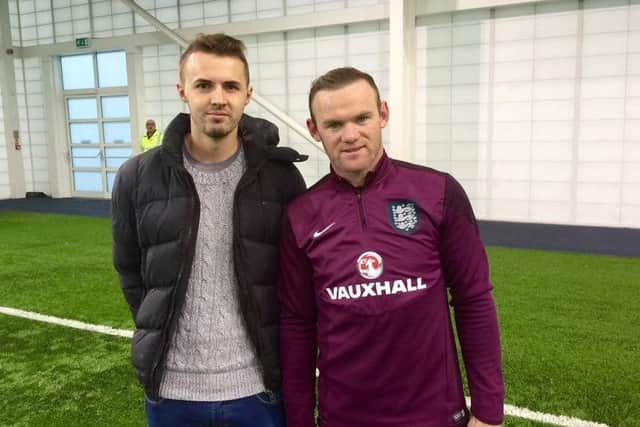

Michael, who had always been a keen sportsman loving football and tennis and used to play county tennis for Lancashire and then Cumbria, decided to go on to Edge Hill University to study sports development.
After his accident, Michael played for the England Cerebral Palsey Squad which is for people who have been brain injured or were born with cerebral palsey.
Advertisement
Hide AdAdvertisement
Hide AdThe seven-a-side team trained at St George’s Park and Michael met the England squad, watched them train and met Wayne Rooney.
Michael didn’t let his injury stop him from making the most of his university experience and he carried on playing football and tennis and he also took up golf and athletics.
Since his accident, Michael has gained numerous qualifications including football, disabled football, handball, tennis and lacrosse coaching, football refereeing, athletics, gym instructor and disability sports.
He has also trained in sports safeguarding, first aid and mental health first aid.
Advertisement
Hide AdAdvertisement
Hide AdMichael also volunteered more than 100 hours for Edge Hill’s Get Active programme coaching tennis to beginners and was the university’s first ever tennis captain.
Michael graduated from Edge Hill just one per cent away from getting a First and has a tennis coaching job at Robin Park in Wigan and also had a court attendant job during Wimbledon.
Michael, who has done some charity work for the Deaf Football Foundation, says: “My accident has made me more aware of disability sports. My career aspiration is to specialise in disability sports, particularly tennis.
“I managed to remain focused throughout the three years of my degree due to the determination I had to succeed after my brain injury.
“It gave me a different perspective on life.
Advertisement
Hide AdAdvertisement
Hide Ad“Balancing your time at university is crucial but for me it was even harder as I had to do my rehab at the same time.
“I appreciate what other people with brain injuries go through and I feel very strongly that they should still be able to access sports and have provision to them and I want to help make that happen.”
Michael was awarded a Chancellor’s Scholarship at a graduation ceremony held on campus at Edge Hill.
Christine Oaks, learning facilitator from Edge Hill’s inclusion services team nominated Michael for the scholarship in recognition of his commitment to his studies and helping others.
Advertisement
Hide AdAdvertisement
Hide AdShe says: “From day one, Michael completed every course that was suggested both on campus and off.
“He achieved the gold award for volunteering after three years working with people of all abilities.
“He has also worked with people with disabilities off campus and during his summer breaks and secured a summer camp position during which he travelled around coaching.
“Michael has shown his leadership skills in so many ways during his time at Edge Hill but has also been reliable, punctual and driven to achieve his full potential.
Advertisement
Hide AdAdvertisement
Hide Ad“When you add this to a personality that is easy to work with, listens to all the advice he is given and continually goes back to his tutors to find out how he can improve, you can see why I thought his hard work should be recognised.”
Michael, who was told by doctors that he would never walk again when he was in hospital, advises other people in similar situations to never give up.
He says: “Sports can be very dangerous and you never know what can happen.
“I was just heading a football like I had done hundreds of times before and never thought there would be such major consequences.
Advertisement
Hide AdAdvertisement
Hide Ad“Luckily, I am now basically fine and can more or less do everything I could before.
“I just have a slight right-handed weakness and my handwriting is affected.
“I have not let what happened put me off sports and I still play football - although my experience has made me more fearful of headers and I don’t go in for them as much.
“I wear a half head guard for football now as my mum makes me.
Advertisement
Hide AdAdvertisement
Hide Ad“I did my dissertation on concussion in elite level football and interviewed top doctors for their perspective.
“What happened to me was life changing but I was determined to make a recovery and do everything I did before and more.”
Michael adds: “It is strange to think that seven years ago, I couldn’t even kick a ball, but now I have been able to achieve so much and am actively involved in sports again.
“The accident has made me appreciate life more and has given me perspective and I want to use my experience to help others.”